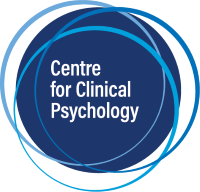What is dissociation?
Dissociation is a detachment from reality, it is a mental process where a person disconnects from their thoughts, feelings, memories or sense of identity. This is different to psychosis, which is a loss of reality or an experience of a delusional reality. You can find more in another blog on this site.
Dissociation and trauma focussed therapy
There are two studies that we will examine in regard to the effect of dissociation on PTSD treatment outcome.
Hoeboer and colleagues (2020) examined this question in their study titled “Impact of dissociation on the effectiveness of psychotherapy for post-traumatic stress disorder: meta-analysis”.
They found no evidence that dissociation moderates the effectiveness of psychotherapy for PTSD. They cautioned that the quality of some of the included studies was relatively low. Only nine of the twenty-one trials they examined were randomised controlled trials.
Resick and colleagues (2012) also examined the impact of dissociation on PTSD treatment, this time with the treatment modality of Cognitive Processing Therapy (CPT). Their study examined three treatment conditions or types:
- CPT with a written trauma account.
- CPT without a written account.
- A written trauma account only.
For the 150 women participating in their randomised controlled trial, they found significant decreases in dissociation that did not vary due to type of treatment. They concluded that overall, pretreatment levels of dissociation did not impact change in PTSD symptoms.
They also conducted further analysis of the data over the course of treatment. They found some interesting results. They reported that women who had low pretreatment levels of dissociation responded most efficiently to CPT without a written account. In contrast to this they found that women with the highest levels of dissociation, in particular high levels of depersonalization, responded better to CPT with a written account.
Summary
Both these studies lend to the notion that dissociation does not have to be a barrier to therapy. In fact, both studies found change in dissociation after trauma therapy.
References
Hoeboer, C. M., De Kleine, R. A., Molendijk, M. L., Schoorl, M., Oprel, D. A. C., Mouthaan, J., Van der Does, W., & Van Minnen, A. (2020). Impact of dissociation on the effectiveness of psychotherapy for post-traumatic stress disorder: meta-analysis. BJPsych open, 6(3), e53. https://doi.org/10.1192/bjo.2020.30
Resick, P. A., Suvak, M. K., Johnides, B. D., Mitchell, K. S., & Iverson, K. M. (2012). The impact of dissociation on PTSD treatment with cognitive processing therapy. Depression and anxiety, 29(8), 718–730. https://doi.org/10.1002/da.21938



